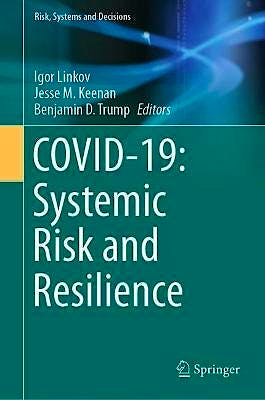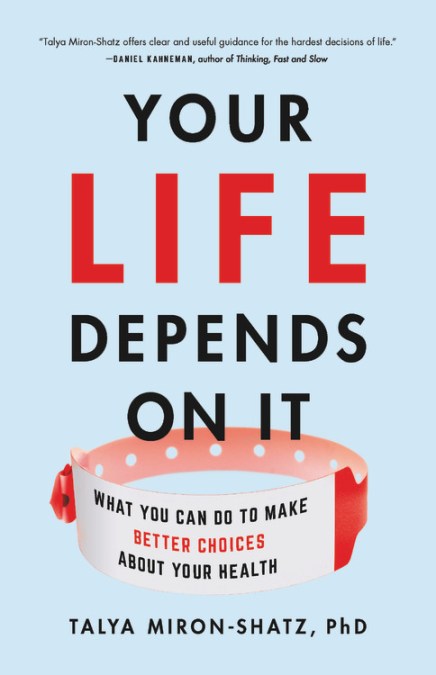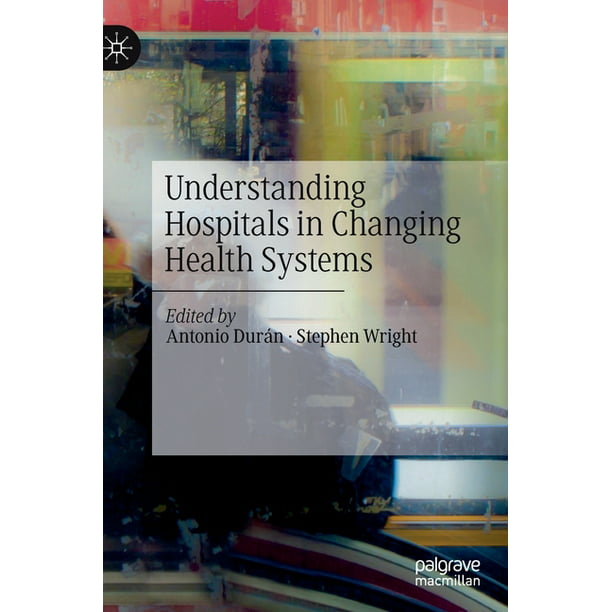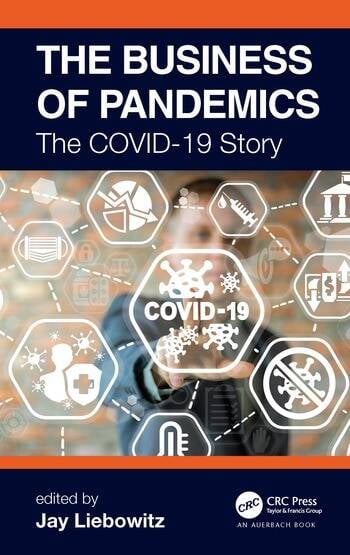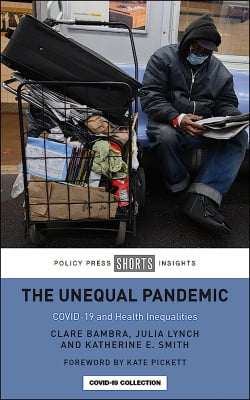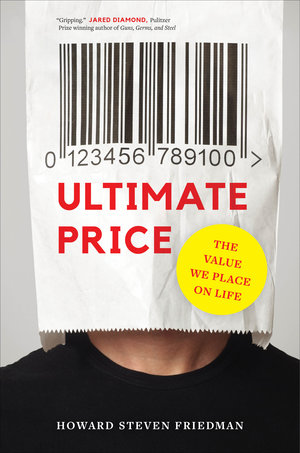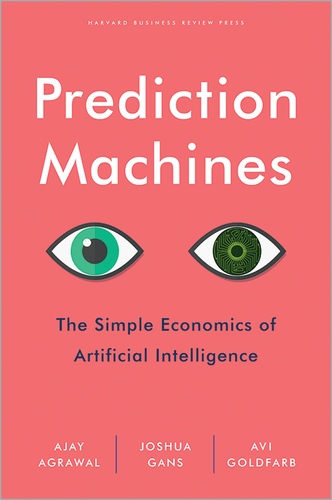COVID-19: Systemic Risk and Resilience
09 d’octubre 2021
08 d’octubre 2021
07 d’octubre 2021
06 d’octubre 2021
The role of hospitals
Understanding Hospitals in Changing Health Systems
The health policy community has for decades opposed the roles of primary care and population health against those of hospitals, blinding us about how to govern and resource our health sectors properly
Gathering together expensive people and pieces of equipment in hospitals enables a delivery of care now and in the future which complements yet goes beyond what simpler settings can offer
03 d’octubre 2021
01 d’octubre 2021
The business of pandemics
THE BUSINESS OF PANDEMICS. The COVID-19 Story
Contents:
Chapter 1. Business and Management Lessons Learned from COVID-19
Jaime Ribera, IESE, Spain
Chapter 2. Developing Big Data, Computer Models, and Simulations for Predicting Its Spread
Scott Nestler, University of Notre Dame and Harrison Schramm, Center for Strategic and Budgetary Assessment, USA
Chapter 3. Conducting Global Business Virtually
Erin Makarius and Debmalya Mukharjee, University of Akron, USA
Chapter 4. Global Economic Impact Resulting from COVID-19
Thomas Hanson, Butler University, USA
Chapter 5. Communicating About COVID-19: Dealing with Fear and Emotion
Vincent Covella and Randall Hyer, Center for Risk Communication, USA
Chapter 6. Media and Communications About COVID-19: A WHO Perspective
John Butler and Gabriella Stern, WHO, Switzerland
Chapter 7. Growing Organizational Capacities for Increased Online Learning, Working, and Health
Sharif Nijim, University of Notre Dame and Paul Grist, Amazon Web Services (AWS)
Chapter 8. Social Impact Resulting from COVID-19
Wei Sun, Howard University, and Andrew Critchfield, Independent Scholar
Chapter 9. Online Learning and Educational Innovations Due to COVID-19
Darleen Opfer and Laura Hamilton, RAND Corporation, USA
Chapter 10. The New Work from Home Environment
David Cook, University College London (UCL), UK
Chapter 11. Re-Opening Markets and Businesses that Have Been Shut or Severely Curtailed
Rod McSherry and Matthew Jackson, University of Texas at San Antonio, USA
Chapter 12. Crisis Decision Making Using Analytics and Intuition
Gloria Wren, Loyola University-Maryland; Jean-Charles Pomerol, Université de la Sorbonne, Paris; Fred Adam and Karen Neville, UCC, Ireland
30 de setembre 2021
29 de setembre 2021
The pandemic in US
Uncontrolled Spread. Why COVID-19 Crushed Us and How We Can Defeat the Next Pandemic
New book by Scott Gottlieb , former FDA comissioner
COVID revealed dangerous gaps in the US public health preparedness, medical infrastructure, and healthcare system. We lacked the public health capacity and resiliency we thought we had. In the most advanced healthcare system in the world, we ran out of medical masks. We had to retrofit anesthesia machines and turn them into respirators. We didn’t have enough swabs to collect samples from patients’ noses.
Our system was set up well to handle singular, technology-intensive, and complex problems like developing a novel vaccine or antibody drugs. We do this better than anyone. But it faltered when we were faced with more mundane problems like manufacturing those vaccines in bulk, deploying testing centers, or making nose swabs to collect respiratory samples. When we finally developed safe and effective therapeutics and vaccines that could treat or prevent infection, we couldn’t manufacture enough of them in time to supply the nation for the winter surge. We had to set up elaborate rationing schemes. Then, we were unable to establish an efficient distribution plan. Antibody drugs went unused because we couldn’t deliver them.
The virus made clear that we’ll need to fundamentally alter the way we approach all of these risks. If we don’t, our society will remain excessively vulnerable. For starters, we’ll have to lean much more on our intelligence agencies, and in a different fashion. International agreements alone haven’t provided us with the information we need about emerging threats. There’s little reason to believe they’ll perform much better in the future. The devastation caused by the pandemic proved that these risks, and our preparedness for them, is a matter of national security on par with other threats. We’re going to have to build the capacity to seek out the information we need to protect ourselves. Sometimes that will demand that we avail ourselves of the tools and tradecraft of our clandestine services. The challenge will be to maintain collaboration and multilateral efforts even as we turn more heavily toward intelligence services to guard against the risk of new contagions.
27 de setembre 2021
26 de setembre 2021
25 de setembre 2021
The value of life
Ultimate Price. THE VALUE WE PLACE ON LIFE
How much is a human life worth? The question’s complexity resides in the fact that how we arrive at a price tag on human life says a great deal about our priorities. The price tags, and the methods used to develop them, are a reflection of our values as a society. They are infused with influences from economics, ethics, religion, human rights, and law.
Ideally, there would be a simple answer of how to value a human life that most people could agree on. Yet there is no such answer. The philosopher Isiah Berlin stated that humans have a “deep and incurable metaphysical need” to search for timeless truth that does not exist.
The task of valuing life has many competing truths and no simple answer. Readers may find it frustrating that we cannot conclude with one key bullet point or a single take-home message about how human life is valued, but topics as complicated as this often cannot be boiled down to one pithy solution that satisfies nearly all interested parties.
Some take the philosophical perspective that human life is priceless.2 Individuals who take this stance conclude that the question of how much a human life is worth is meaningless or unanswerable. However intellectually satisfying, this perspective ignores the reality that human life is constantly being monetized and that this should therefore be done in an equitable way.
This book has taken the pragmatic approach of focusing on the real-world methods of how life is valued and the implications and limitations of these methods. The prices depend on who is doing the valuation, the methods they are using, the purpose for the valuation, and quite often, whose life is being valued.
24 de setembre 2021
23 de setembre 2021
Incentives in digital health
Paying for Digital Health Care — Problems with the Fee-for-Service System
From NEJM:
Without payment-system changes, we can expect to have many unhappy patients and physicians struggling with this complex payment labyrinth. Only a payment system that encompasses some form of capitation will eliminate these issues.
The status quo isn’t viable, the current approach that relies on determining payments for each type of digital interaction is destined to fail because such interactions aren’t distinct services that can be easily differentiated. Unless we move rapidly toward capitated models, the health care system will continue to deliver suboptimal, non–patient-centered care that fails to harness the potential of the technology that exists all around us.
PS . Topol on value-based care: It’s a joke, value-based care. Basically, we have one-third of the healthcare, but $3.6 trillion is waste—low-value care. We need to stop that. That’s part of why it’s so costly. And so this whole idea of value-based care doesn’t even get to it. There’s a long list of hundreds of things that each of the professional societies have called out as being shouldn’t be done anymore. And we’re doing it every day, you know, thousands, hundreds of thousands of times, every day and week in this country. We have to get rid of the waste and inappropriate and unnecessary care and we haven’t done anything to do that here of note.
Palermo, 1963
22 de setembre 2021
Claiming for global regulation of genome editing (2)
HUMAN GENOME EDITING:RECOMMENDATIONS
Last July the WHO Expert Advisory Committee on Developing Global Standards for Governance and Oversight of Human Genome Editing released its recommendations. This is a crucial document that all governments should take into account and develop its specific regulation. Time is running out
The Committee produced a series of recommendations in nine discrete areas: 1. Leadership by the WHO and its Director-General; 2. International collaboration for effective governance and oversight; 3. Human genome editing registries; 4. International research and medical travel; 5. Illegal, unregistered, unethical or unsafe research and other activities; 6. Intellectual property; 7. Education, engagement and empowerment; 8. Ethical values and principles for use by WHO and 9. Review of the recommendations.
